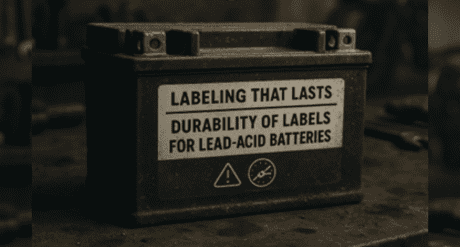
The Weekly Pulse: 9th – 13th January

What’s HOT in our Regulatory World
What are our clients looking at?
This week’s trending sources in C2P
- Sweden: Tax on Chemicals in Certain Electronics Law, 2016:1067 – Amendment – (on updating tax amounts) Law 2022:1773
- France: Consumer Information on the Environmental Qualities and Characteristics of Waste-generating Products, Frequently Asked Questions, December 2022
- EU: Medical Devices, Regulation (EU) 2017/745 and Others – Proposed Amendment – (on transitional provisions for certain medical devices and in vitro diagnostic medical devices) Draft Regulation, January 2023
What is our Content Team talking about?
Final version of US Climate Change Disclosure Rule expected in April- Joanne O’Donnell
The US SEC recently announced details of its upcoming rulemaking agenda for 2023.
The final version of the Climate-Related Disclosures for Investors rule is expected in April 2023.
The rule, once enacted, would require public companies subject to the Securities Exchange Act of 1934 (i.e., registrants) to include certain climate-related disclosures in their registration statements and periodic reports, including information about climate-related risks that are reasonably likely to have a material impact on their business, results of operations, or financial condition, and certain climate-related financial statement metrics in a note to their audited financial statements.
What are our Knowledge Partners talking about?
The European Commission publishes a proposal to amend the transitional provisions foreseen in the Medical Devices Regulation and the In Vitro Diagnostic Medical Device Regulation – Cooley
On 6 January 2023, the European Commission adopted a proposal to amend the transitional provisions of Regulation (EU) 2017/745 on medical devices (“MDR”) and Regulation (EU) 2017/746 on in vitro diagnostic medical devices (“IVDR”).
The proposal aims to prevent medical device shortages on the EEA market. The proposed amendments introduce an extension to the transitional periods established in the Regulations to provide medical device manufacturers more time to bring their devices into conformity with the requirements of the Regulations. In the case of the MDR, the length of the proposed extension is contingent on the risk classification of devices.
The proposed amendments were discussed during the meeting of the Employment, Social Policy, Health and Consumer Affairs Council (“EPSCO”) which was held on Friday, 9 December, 2022.[1] During the meeting, the overwhelming majority of the Health Ministers of the EU Member States welcomed the proposed prolongation of the transitional periods established in the MDR and the IVDR and underlined the urgency of delaying implementation of the Regulations.
The European Commission’s proposal to amend the transitional provisions established in the MDR and the IVDR includes the following elements:
- extension of the transitional period for higher risk (Class III and IIb implantable devices) medical devices covered by a CE Certificate of Conformity issued in accordance with the Medical Devices Directive (“MDD”) or the Active Implantable Medical Devices Directive (“AIMDD”) prior to 26 May 2021 from 26 May 2024 to 31 December 2027;
- extension of the transitional period for medium and low risk (other Class IIb devices, Class IIa and certain Class I devices) medical devices certified in accordance with the MDD or the AIMDD prior to 26 May 2021 from 26 May 2024 to 31 December 2028;
- introduction of a transitional period for class III custom-made implantable devices until 26 May 2026 under the condition that an application for a conformity assessment is lodged with a notified body by the medical device manufacturer by 26 May 2024 and a contract with the notified body is signed before 26 September 2024;
- extension of the period of validity of certificates issued in accordance with the MDD or the AIMDD based on the product’s risk class; and
- removal of the “sell-off” deadline established in Article 120.4 of the MDR and Article 110.4 of the IVDR for medical devices and IVDs respectively. This means that medical devices and IVDs certified in accordance with the MDD, the AIMDD and the in vitro diagnostics Directive (“IVDD”) before the end of the transitional period established in the MDR and the IVDR will be allowed to remain on the EEA market.
According to the proposal, medical devices and IVDs would benefit from the prolonged transitional periods if they fulfill certain conditions. Medical devices and IVDs must not present an unacceptable risk to patient and user healthy and safety. Moreover, the application of the extended transitional periods would not cover devices that have undergone significant changes in terms of their design and intended purpose. Manufacturers must, moreover, have started the process of transitioning their devices to the requirements in the MDR and the IVDR.
The reasons behind the proposed extension to the transitional periods
Despite progress in the implementation of the MDR and the IVDR, there have been significant delays in the transition of medical devices and IVDs to the new rules and challenges in respecting the original transition deadlines provided in the Regulations. Limited notified body availability and capacity, shortages in the supply of raw materials in the EU and lack of preparedness of manufacturers to bring their devices into conformity with the Regulations are among the factors that have contributed to these delays and challenges. To avert the risk of disruption to the supply and availability of medical devices and IVDs on the EU market that could impact the protection of patient health, the European Commission therefore proposed to allow safe legacy devices to remain on the market in the EEA after the end of the currently applicable transitional period.
Next steps
The proposal adopted by the European Commission will be considered for adoption by the European Parliament and the European Council through a co-decision procedure.
If adopted in its current form, the proposed extension of the transitional provisions would have many implications for the medical device industry.
What are our clients asking about?
“Some questions regarding the changes of the Austria: Packaging Waste Ordinance 184/2014. First, are the changes in C2P ? Second, at the end of 2022 we have been informed that in Austria as of 1 January 2023 it is mandatory to appoint a local person responsible for the enforcement of packaging waste disposal legislation. We have proceeded to update with the ARA but they have not yet given us an answer yet. Third, in Spain we have the same problem as it seems that the national regulatory adaptation on this issue will come soon but we cannot find any other precise information.“
Answer by Freida Weuschner
This information is available in C2P in the source “Austria: Packaging Waste Ordinance 184/2014 – Amendment – (on implementing Directive (EU) 2019/904 and (EU) 2018/852) Ordinance 597/2021”.
The requirement to appointment an authorised representative was listed in the dates section of the source and in the source’s summary i.e. “As specified in Section 16b foreign mail order companies must appoint an authorized representative for packaging placed on the market in Austria from 1 January 2023.”
Regarding requirements for Spain, in the source “Spain: Packaging and Packaging Waste, Royal Decree No. 1055/2022”, there is an obligation to register producers or their authorised representatives by the 28 March 2023. This compliance deadline is listed in the dates section of the source page.
Stay Updated On Global Regulations With The Weekly Pulse
This information is based on the most viewed regulations on C2P this month.
Sign up to get the latest compliance news delivered to your inbox weekly, for free!
The Pulse – Weekly Newsletter
Get the latest compliance news delivered straight to your inbox








